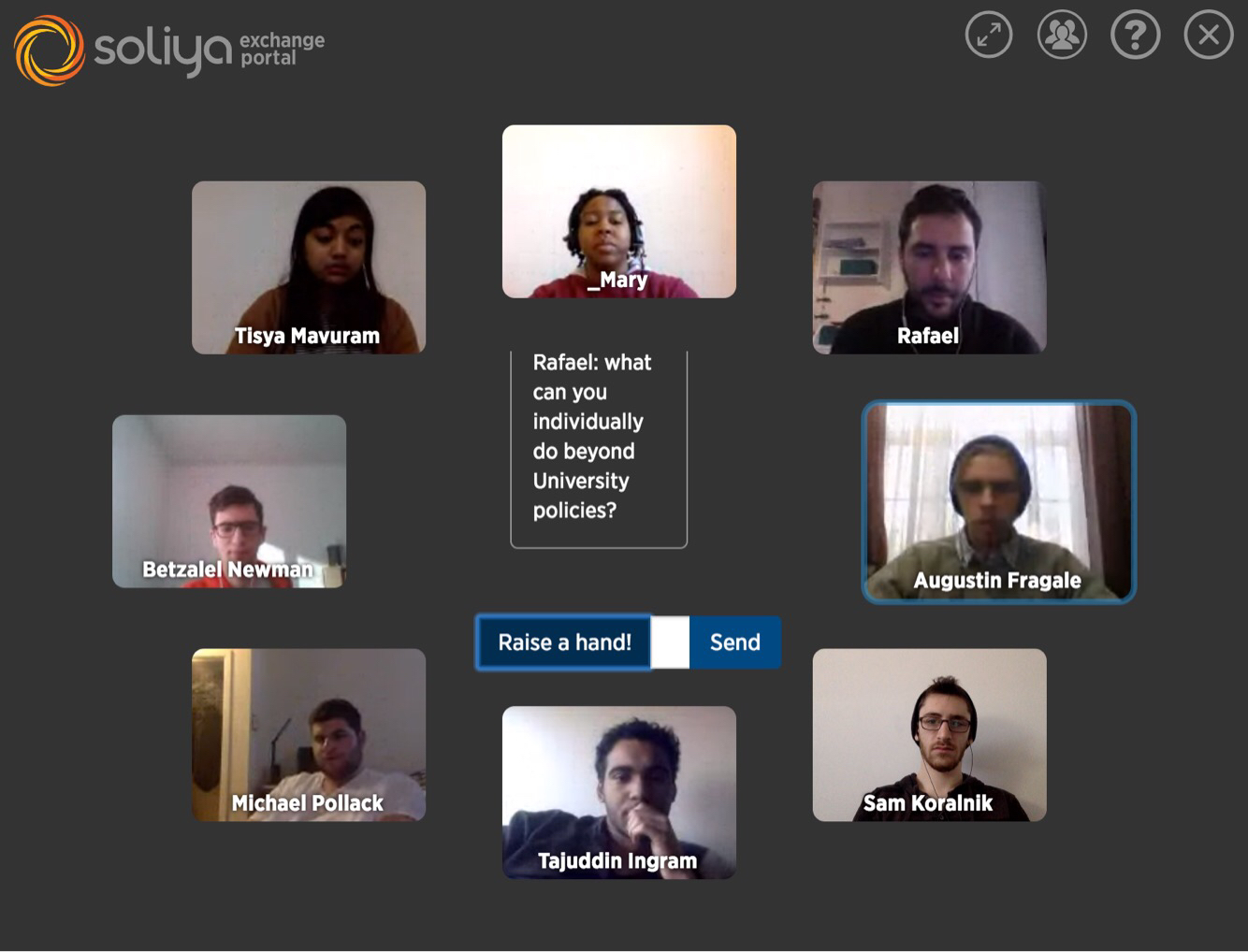A program to encourage University of Maryland students to have meaningful conversations about identity and conflicts finished its first pilot in January, but its future is uncertain.
The program, which began over winter break after the Student Government Association approved it in December, invited students to log on to the website of Soliya — an international nonprofit dialogue organization — and sign into a scheduled online chat group for four weeks. With the help of a moderator, students talked to each other about their identities and how different personal factors play into their university experiences.
After South Campus Commons representative Sam Koralnik presented the program to the SGA in December, eight people engaged in online discussions for four weeks over winter break. In his pilot program report to the SGA on Feb. 21, Koralnik wrote that people didn’t show up consistently enough to have deep conversations.
Despite this, the senior government and politics major hopes the program can be expanded to encourage students to approach sensitive questions with people of different cultures.
“I think that giving people the opportunity to engage with people of different backgrounds and engage on these difficult topics, and provide a space for that, can really help the campus grow and provide a safer and stronger campus community where we’re able to have these discussions,” Koralnik said. “That’s the baseline for this project.”
[Read more: SGA recommends UMD fund diversity dialogue program]
In the past year, this university has been struggling to react to racial tensions. Second Lt. Richard Collins, a black Bowie State University student, was murdered on this university’s campus in May; Sean Urbanski, a white former University of Maryland student, has been indicted on hate crime and murder charges in the killing.
Additionally, a swastika was spray-painted on campus property in September, and a noose was found in a fraternity house in April.
“Throughout my time at campus, whenever we talk about difficult issues like racism and bigotry, hate and bias, a lot of what people say is that we need more dialogue,” Koralnik said. “I just didn’t see anybody taking concrete action or steps to bridge that divide. We have a lot of different communities on campus that are very separate from each other and don’t interact.”
The dialogue sessions over break centered around ideas of personal identity, in questions posed by a trained Soliya moderator. Students logged in to a Soliya video chatroom, and shared their histories and thoughts on how discrimination surfaces on campus and what they thought identity meant.
Betzalel Newman, a junior government and politics major, wasn’t sure what to expect before the dialogue sessions started. He found the conversations “enjoyable,” but did not take that much away with it, he said.
“That’s not from any inherent flaw in the program. … It was hard to get people to come consistently,” Newman said, adding he thinks better consistency would have allowed the group to dig into deeper topics.
Koralnik said he was the only student who was able to make every two-hour session, as students were trying to arrange the sessions with their break schedules and had no concrete incentive to attend the online meetings.
Another participant, sophomore philosophy major Mikey Pollack, said he would have been interested in talking with people drawn from a wider pool of students — something the pilot had trouble achieving due to a short planning period.
“I expected a diverse group of people, because it was a dialogue thing,” Pollack said. “I would say it was somewhat diverse, but I feel like it was very diverse in terms of people, but not diverse in terms of political opinions.”
Both Pollack and Newman said they would have been interested in including more conservative voices.
“I would be interested in knowing if they feel as people who voted for Trump — specifically those people — if they felt discriminated against on campus, if they felt like their opinions were marginalized in classes,” said Pollack. “I understand why that might be uncomfortable for students.”
[Read more: UMD’s Center for Diversity and Inclusion hosts summit on issues facing college campuses]
Since Koralnik plans to graduate after this semester, the future of the program is undecided. He said the next stage would be a larger dialogue group, or a conglomeration of five different chat groups, but it depended on funding and the interest of administration.
Pollack said despite the kinks of the pilot, he believes the experience has great potential.
“I learned that there’s a lot of really caring people out there who really want to change, quite frankly, the campus community,” said Pollack. “This kind of pilot program is something that should be brought out on a greater scale somehow.”



